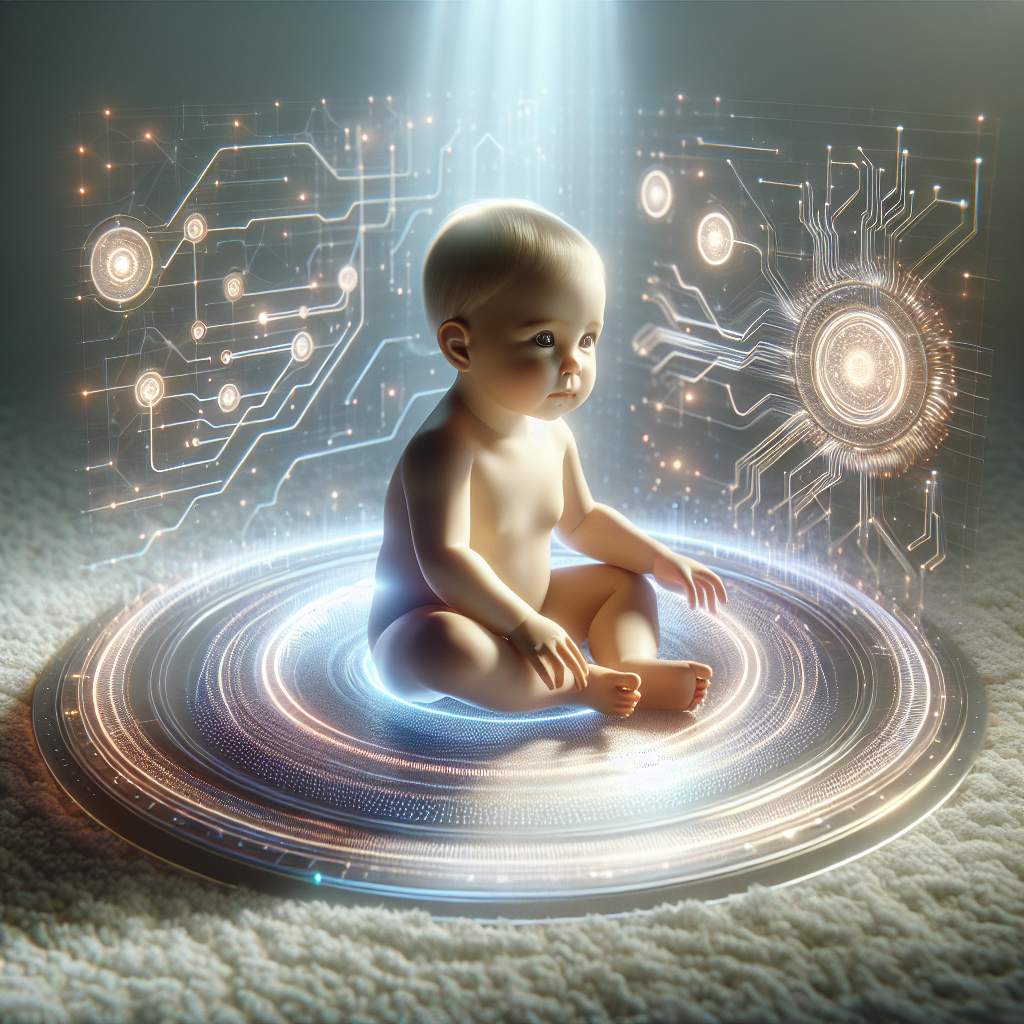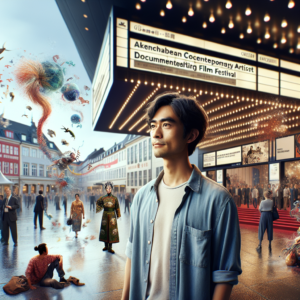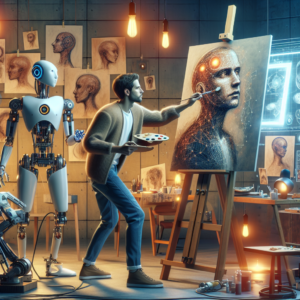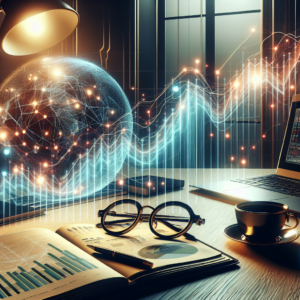Sam Altman Predicts a Future Where AI Outshines Human Intelligence
In a bold statement that has stirred discussions across the tech community, OpenAI CEO Sam Altman recently addressed the future of artificial intelligence (AI) and its implications for human intelligence. As Altman awaits the arrival of his first child, he has shared his insights on the evolving relationship between humans and machines, asserting that the child he’s expecting will never be smarter than AI. However, he believes that the unique abilities of humans will continue to hold value in this AI-dominated landscape.
The Impending AI Revolution
The rapid advancements in AI technology are undeniable, and leaders like Altman are not shy about highlighting the potential consequences. The rise of intelligent machines is transforming various sectors, from healthcare to finance, and even creative endeavors. As Altman notes, “We are on the brink of an AI revolution that will change the world as we know it.”
This revolution is marked by the increased capabilities of AI systems, which can learn and adapt at an unprecedented pace. Altman argues that while machines may surpass humans in specific intellectual pursuits, they lack the holistic understanding and emotional intelligence that humans possess.
The Value of Human Intuition and Creativity
One of the key elements that Altman emphasizes is the importance of human intuition and creativity. While AI can analyze vast amounts of data and predict outcomes with remarkable accuracy, it lacks the ability to think outside the box, to create, and to feel. Altman argues that these human traits will always be invaluable, particularly as AI systems take on more routine and analytical tasks.
In a world where AI might manage complex data sets and make decisions quicker than any person could, the ability to connect with others, to understand emotions, and to innovate will set humans apart from machines. Altman believes that the next generation will need to focus on developing these uniquely human skills to thrive alongside AI.
The Ethics of AI Development
As AI continues to advance, ethical considerations become more pressing. Altman is an advocate for responsible AI development that prioritizes safety, transparency, and accountability. He argues that while AI has the potential to improve lives, it could also pose significant risks if left unchecked.
The challenge, according to Altman, lies in striking a balance between innovation and ethical guidelines. As we enhance the capabilities of AI, we must also ensure that we are doing so in a way that respects human values and societal norms. This means engaging in open dialogues about the implications of AI and involving diverse voices in the conversation.
Preparing for an AI-Driven Future
With the impending AI revolution, it is crucial for society to prepare for the changes that lie ahead. Altman suggests several strategies for education and workforce development that can help individuals adapt to a world increasingly influenced by AI.
1. Emphasize Critical Thinking: Education systems should focus on developing critical thinking skills among students. This will enable them to assess information objectively and make informed decisions, which is essential in a world where AI may present biased or misleading data.
2. Promote Collaboration: Encouraging collaboration between humans and AI can lead to innovative solutions. Rather than viewing AI as a competitor, individuals should learn to work alongside these systems, leveraging their strengths while contributing uniquely human insights.
3. Invest in Lifelong Learning: As the job market evolves, continuous learning will be vital. Altman advocates for robust lifelong learning programs that allow individuals to reskill and upskill, ensuring they remain relevant in an AI-driven economy.
The Role of AI in Society
AI’s role in society is multifaceted, encompassing both the challenges and opportunities it presents. Altman highlights that while AI systems can improve efficiency and productivity, they must be harnessed for the greater good. The key is to design AI systems that complement human abilities rather than replace them.
Addressing Job Displacement Concerns
One of the most significant concerns regarding the rise of AI is job displacement. As machines become capable of performing tasks traditionally carried out by humans, many fear for their job security. Altman acknowledges this concern but believes that the future will see a shift in the nature of work rather than a complete eradication of jobs.
Many roles may evolve to incorporate AI tools, allowing workers to focus on more complex tasks that require critical thinking and creativity. Furthermore, as new technologies emerge, new job opportunities will also arise. It is essential that society proactively supports individuals in transitioning to these new roles through education and training.
Preparing the Next Generation
As Altman anticipates the birth of his child, he reflects on the skills and values that will be essential for the next generation. He suggests that parents and educators should prioritize teaching children how to navigate a world shared with AI.
1. Encouraging Curiosity: Fostering a sense of curiosity and a love for learning will help children adapt to a world where information is constantly evolving. This mindset will enable them to engage with new technologies and ideas effectively.
2. Building Emotional Intelligence: As AI systems become more prevalent, the ability to empathize and connect with others will become increasingly important. Teaching children to understand their emotions and the emotions of others will prepare them for meaningful interactions in both personal and professional realms.
3. Instilling a Sense of Responsibility: As future leaders and innovators, today’s children must learn to approach technology with a sense of responsibility. This includes understanding the ethical implications of their actions and making choices that prioritize the well-being of society.
The Future of AI and Humanity
As we advance into an AI-driven future, the relationship between humans and machines will continue to evolve. Sam Altman’s perspective offers a glimpse into this future, emphasizing the need for collaboration, ethical considerations, and the preservation of uniquely human skills.
In conclusion, while Altman believes that his child may never be smarter than AI, he views the emotional, creative, and intuitive aspects of humanity as invaluable assets. As we navigate this uncharted territory, it is essential to focus on education, lifelong learning, and ethical AI development to ensure a harmonious coexistence between humans and artificial intelligence. The future may be uncertain, but with the right mindset and preparation, we can embrace the changes that lie ahead.



